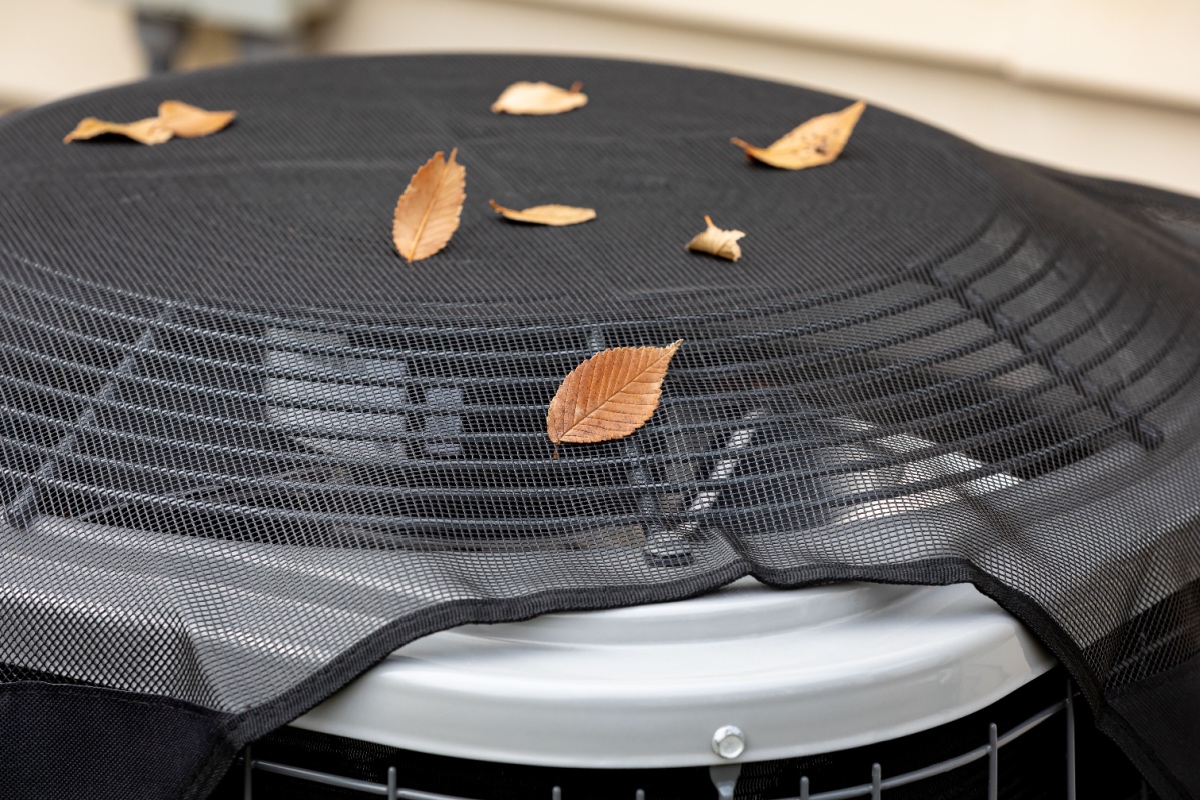Fall is beautiful, with crisp air, cooler temperatures, and vibrant leaves adorning the trees. However, as the leaves fall, they can become more than just an aesthetic feature—they can also affect various aspects of your home. Gutters get clogged, lawns need more frequent raking, and outdoor installations, including your air conditioning unit, can be impacted.
Debris, like leaves, twigs, and dirt, can accumulate around your AC unit, potentially causing damage or reducing its efficiency.
Why Consider Covering Your AC Unit in the Fall?
Here, we at Infinity Heating and Cooling look at the potential drawbacks and best practices for covering your AC unit during this time of year in Las Vegas. While your air conditioning unit is designed to withstand outdoor elements like rain and snow, it’s still vulnerable to damage caused by debris that falls during the autumn months. Here’s why covering your AC unit might seem like a good idea:
Protection from Debris
One primary reason to cover your AC unit in the fall is to protect it from falling leaves, twigs, dirt, and other debris. If left unchecked, this material can accumulate inside the unit, potentially blocking the fan, clogging the fins, or causing other issues that can reduce the system’s efficiency.
Prevention of Moisture Build-Up
While your AC unit is built to handle rain, excess moisture caused by debris or blocked drainage can lead to rust and corrosion over time. Covering the unit can reduce the amount of moisture that gets trapped inside, especially if leaves and twigs are allowed to pile up.
Keeps the Unit Clean
A cover can keep your AC unit cleaner throughout the fall and winter. This means that when spring arrives, less cleaning and maintenance will be needed before you turn it back on.
Potential Drawbacks of Covering Your AC Unit
Although covering your AC unit can provide some protection, there are potential drawbacks to be aware of:
- Moisture Trapping
- Rodent Nesting
Some homeowners in Las Vegas may be tempted to cover their AC unit completely, but this is only sometimes necessary. The unit only needs to be partially covered to protect the most vulnerable components, such as the fan and coils. Over-covering or using the wrong type of cover can restrict airflow and cause more harm than good.
Best Practices For Covering Your AC Unit
If you decide to cover your AC unit for the fall, it’s essential to follow best practices to avoid causing damage or reducing the unit’s efficiency. Here are a few tips to consider:
Use a Proper AC Cover
Not all covers are created equal. Avoid using makeshift covers like tarps or plastic bags, as these can trap moisture and lead to corrosion. Instead, opt for a cover specifically designed for AC units. These covers usually have breathable material that allows airflow while keeping debris out.
Cover Only the Top
Covering the entire unit is optional. In fact, it’s better to cover only the top of the AC unit. This will protect the unit from falling debris while allowing the sides to remain open for ventilation. This helps prevent moisture build-up while still offering protection.
Remove the Cover in Winter
Once winter arrives, you should remove the cover. Snow and ice won’t damage your unit, but leaving the cover on throughout the winter can trap moisture, which could lead to rust or mold growth. If you cover your AC unit only for the fall season, you minimize these risks while protecting the unit from debris.
Keep the Area Around the Unit Clear
Even if you decide not to cover your AC unit, it’s essential to clear the area around it regularly. Remove any leaves, twigs, and dirt that accumulate around the base to prevent them from getting inside the unit. Periodically checking the unit throughout the fall can prevent long-term damage caused by debris build-up.
When Should You Avoid Covering Your AC Unit?
There are some situations where covering your AC unit may not be necessary or advisable:
Mild Climate
If you live in an area with mild winters or where fall debris isn’t a significant issue, covering your AC unit may be unnecessary. Your unit is built to withstand the elements, and in many cases, it can perform just fine without a cover.
If the Unit is Used Year-Round
In some climates, air conditioners are used even during the fall and winter months to cool homes. If this is the case, you should not cover your AC unit, as it will need proper airflow to function efficiently.
Contact Air Conditioning Professionals
If you’re unsure whether covering your AC unit is necessary or how to do it properly, consult a professional. From cleaning your ductwork to inspecting your outdoor unit, our trained technicians can provide expert advice and services that keep your air conditioning system running smoothly and efficiently, regardless of the season.
If you need AC maintenance or need to cover your AC in the fall, call Infinity Heating and Cooling at (702) 291-2000.


